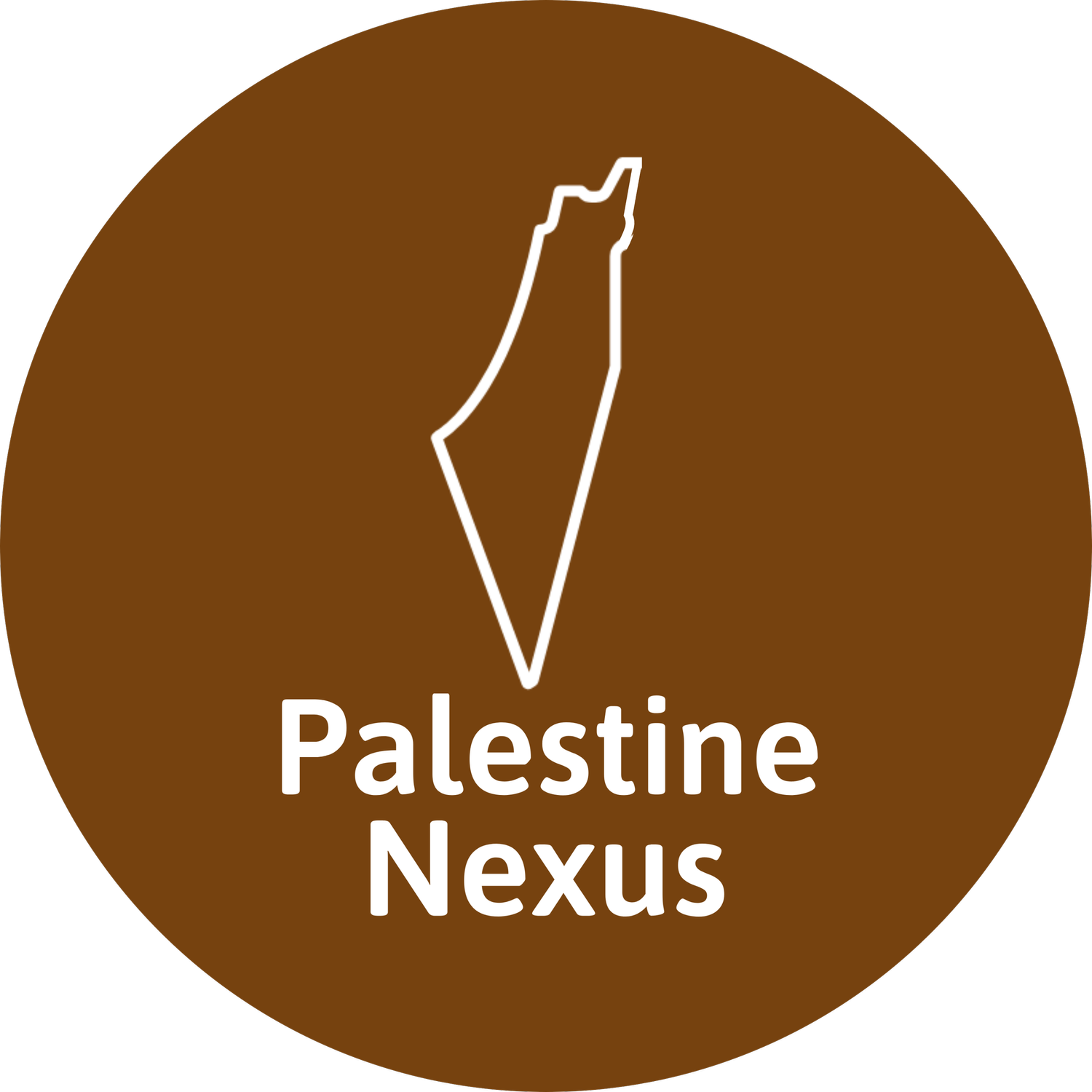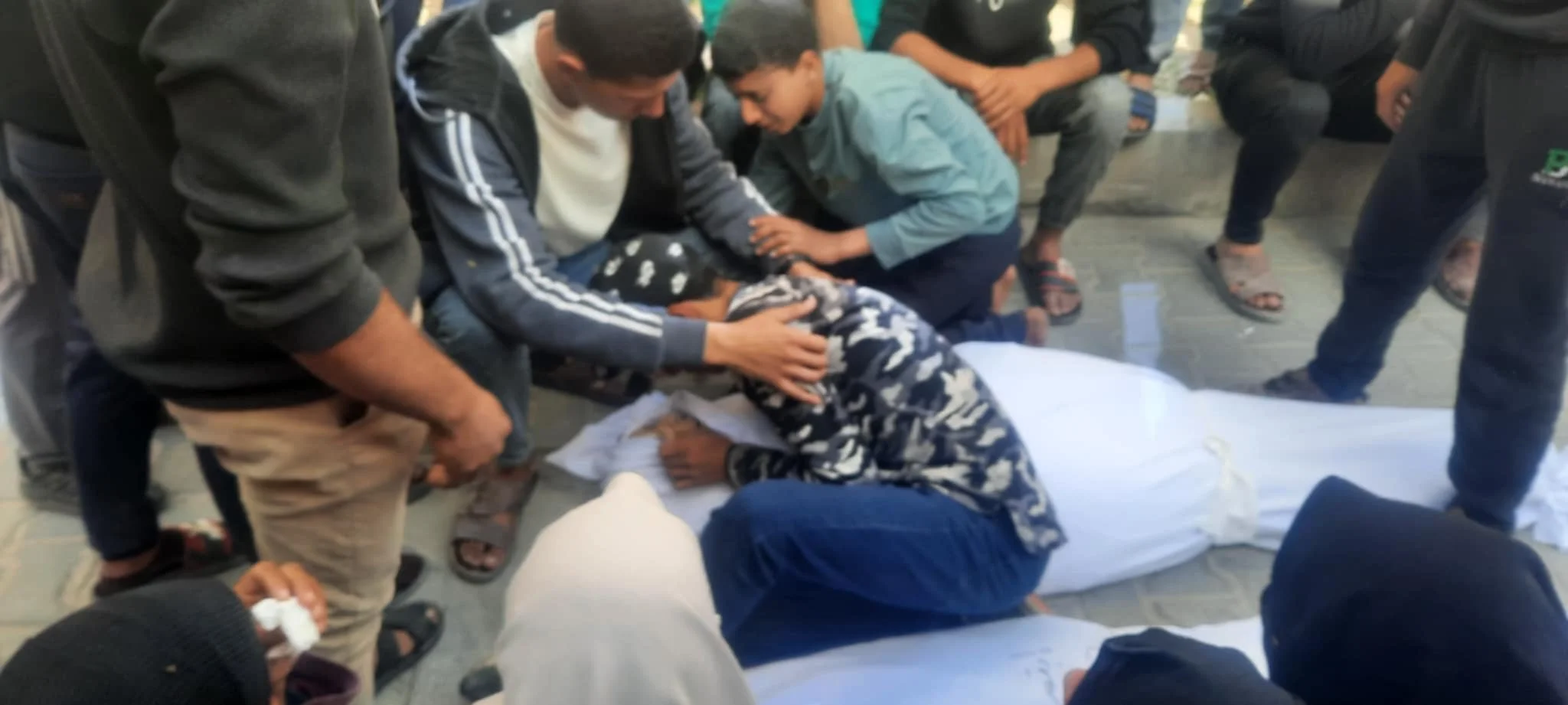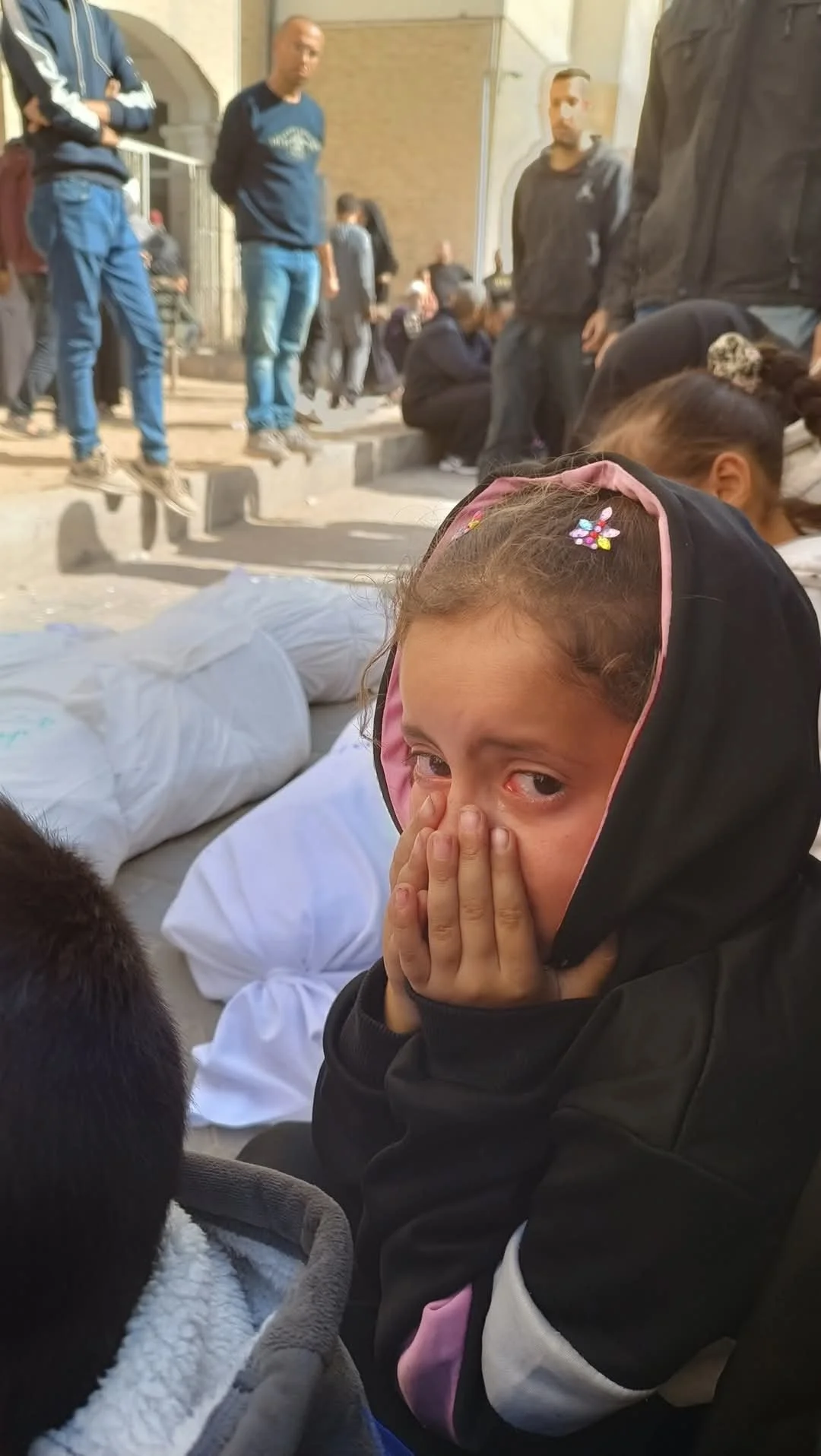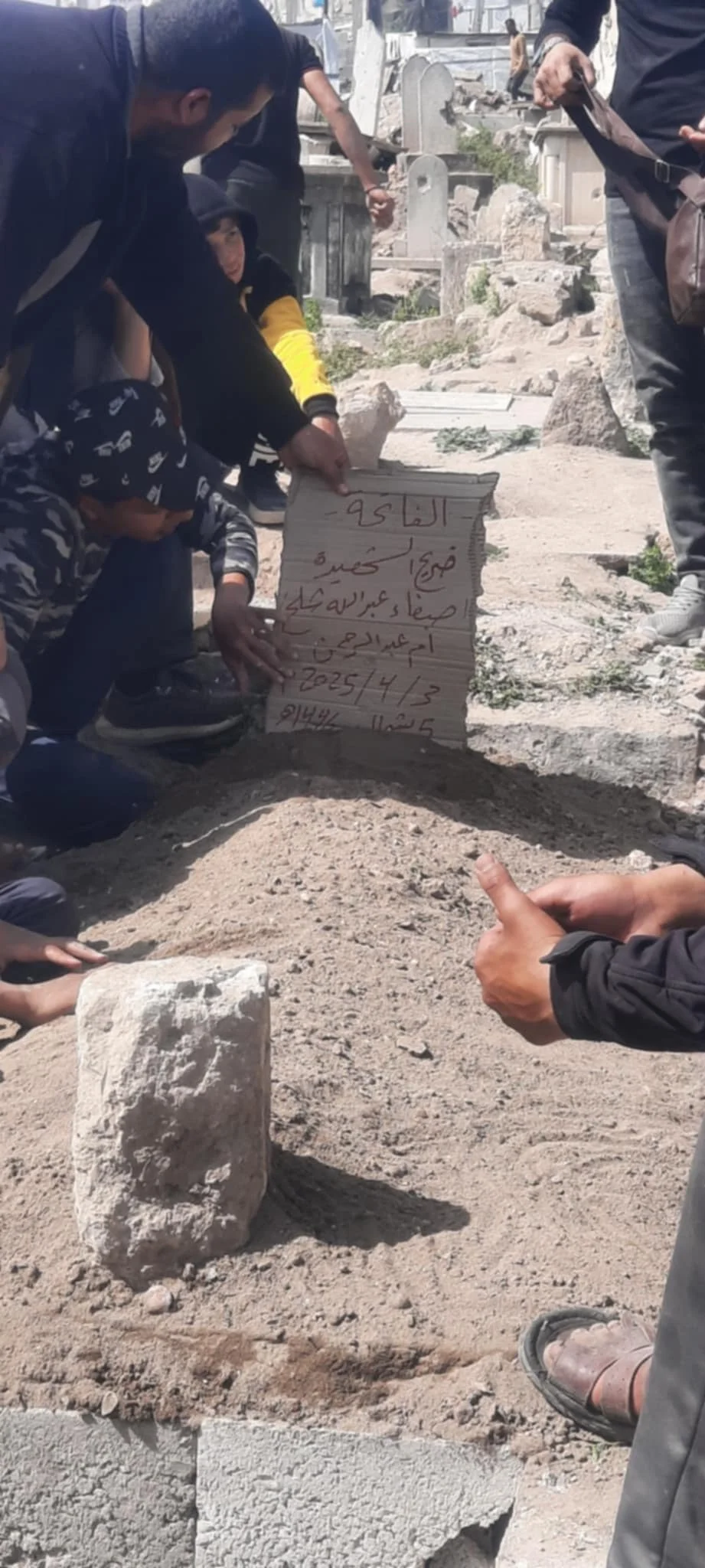The phone call that left Abdulrahman in tears: dispatches from the genocide in Gaza
Abdulrahman kisses his mother's head while Malek holds him, crying over their loss at al-Ahli Arab Hospital, Gaza Strip, April 3, 2025 (photo credit: Moin Abu Hein)
On April 1, 2025 my cousin, Abdulrahman Ayman Shallah, visited me and my family in the south of Gaza. He had come from Shuja'iyya and was planning to stay for just one day, but he was enjoying our company and decided to stay a bit longer with us in Deir Al-Ballah.
On his first day, we played football in the afternoon and cards in the evening. On his second day, the weather was beautiful, so we went to the sea for a swim. On his third day, April 3, I woke up at 7:00 a.m. to Abdulrahman screaming on the phone.
Abdulrahman's maternal uncle, Ibrahim Abu Heen, who lived next to their family in the north, was calling to tell him he needed to return immediately. Something had happened. But Ibrahim couldn’t bring himself to tell the whole story over the phone.
So Hazem, Abdulrahman's paternal uncle, took the phone, crying, as he broke the news to Abdulrahman. "Your family’s house was bombed with three F16 rockets,” he said.
When Hazem’s own house had been bombed and destroyed last December, he didn’t cry. Hazem was distraught about something else.
Abdulrahman begged Hazem to tell him what happened, and after a few starts, stops and stutters, he finally obliged. “All your family members are injured, and your mother, Safaa, is a martyr. May she rest in peace.”
Abdulrahman cried bitterly and prayed that Allah would have mercy on his mother’s soul. He called his uncle in the north. “Do not bury my mother until I come,” he said. “I want to say farewell to her.”
By then, I was crying too, thinking of the loss of my beloved aunt Safaa. She was the one who raised me while my mother was at work. Before the genocide began, she would tell me stories about my childhood over coffee and treats.
Abdulrahman, Hazem, my mother and I ran to find a car to head to al-Ahli Arab Hospital, but the occupation forces banned cars north of al-Rasheed Street, while the road had been completely destroyed in any case. Instead, we found a cart and stood for more than an hour in the back of it as it bumped along the bombed out road.
Areej Abu Hein, grandaughter and niece of the martyrs, at al-Ahli Arab hospital on April 3, 2025. (photo credit: Moin Abu Hein)
When we reached the hospital, Abdulrahman ran ahead to see his mother’s body. He sobbed, hugging her and praying for Allah to have mercy on her soul. “Your face is brighter than the moon, yamma [my mother],” he said, embracing her, knowing it would be the last time.
We then went to see the injured. Abdulrahman's father, Ayman, had been burned by the heat of the rocket. He couldn't move his right leg. There were hardly any professional doctors in the hospital, as most had already been murdered by the occupation forces, let alone any burn specialists that could’ve treated Ayman.
Abdulrahman's 16-year-old brother, Mohammed, was still unconscious when the ambulance brought him to al-Shifa Hospital. He was lying in the intensive care unit in critical condition, the right part of his face so swollen with blood he couldn't open his right eye. The doctors warned he didn’t have much time left.
Abdulrahman's sister, Doha, 19, was conscious, but unable to move her right leg, while Abdulrahman's 13 year-old brother, Malek, had been badly scarred but was still able to move.
Abdulrahman's siblings and his father still did not know about their mother. The people working at the morgue wanted to bury Safaa, but we told them to wait so her husband and children could say farewell for the last time.
Abdulrahman, as he looks over his mother's grave in Shuja'iyya, the Gaza Strip, April 3, 2025 (photo credit: Moin Abu Hein)
Safaa’s family members were unable to move because of their injuries, so we carried her body to her husband Ayman. We lifted her up for him to see her one last time. He wanted to touch her face, but his injuries were too severe to reach her. We then took Safaa’s body to her daughter, Doha. As she looked at her mother’s face for the last time, she wept. I’ll never forget the look on her face.
Abdulrahman wanted to see the bombed house, the remains of his family home, so I went with him. Abdulrahman began to search through the rubble for any of his mother's belongings to save a memory of her. He found a few pieces of clothes, and her hairbrush.
Suddenly, Hazem called me saying, "where are you? The occupation army started a new operation in Shuja'iyya."
I was in the midst of telling him that I was with Abdulrahman at their house east of Shuja'iyya when a bombardment struck nearby. I hung up. We started moving. While we were leaving, heading west, another shell landed in front of us.
They had announced the evacuation order earlier that day so the Israeli army could bomb the neighborhood as it desired — but we didn’t even have time to leave.
I did not know where to go and how to act, but Abdulrahman had been through this before. “Don't look at anything,” my cousin told me. “We will see bodies and blood in the streets, but all you have to do is just keep running.”
Abdulrahman and I kept running until we reached Al-Shifa Hospital. Mohammed was in the intensive care unit there. At the hospital, we were able to catch our breath.
My cousins had been able to get treatment, and as they stabilized, they were transferred to other hospitals in the south. Ayman was injured in his right thigh near his hip, so we took him to al-Aqsa Hospital in Deir al-Balah. Doha had a fracture in her right leg, so we took her to al-Midanee Hospital in Al-Zawaideh.
The doctors told us that Mohammed had a basal skull fracture and diaphysis in his hip, so remained for three days until his condition improved to transfer him to a better-equipped hospital in the south, al-Aqsa. Mohammed was the only one who did not know about his mother yet.
When Mohammed woke up after two days of his surgery, he reached for his phone. He lay there scrolling in the hospital bed, until he suddenly said, “I haven't seen my mother since the bombing, and my cousins are praying for her soul.” He had seen their posts mourning Safaa on Facebook.
Neither Hazem nor I knew what to say, so we changed the subject — afraid that if he realized his mother had been martyred, it might break him. He was the only one who didn’t have the chance to say goodbye to her. When his condition improved, his father talked to him. He asked his son to pray for his mother. He obliged, praying for his mom.
Postscript: Since writing this piece, the al-Ahli Arab hospital, where all my family members were supposed to remain, was bombed on April 13, without warning. One child died in the attack. The World Health Organization declared the hospital out of operation.




